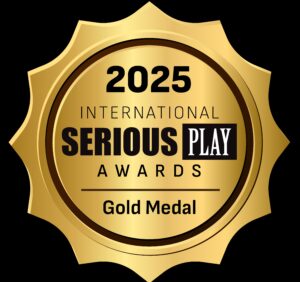Regime Card Game
A transactional card game where players try to position themselves appropriately for each round.
Guiding Question:
- How do different sources of power influence the structure and function of government systems, and how do various types of government address issues of power, decision-making, and citizen participation?
Objectives:
- Demonstrate understanding of the different sources of power and explain how these sources shape political, social, and economic systems.
- Compare the key characteristics of various economic systems and explain how each system addresses fundamental economic questions such as production, distribution, and consumption.
- Analyze different types of government systems and explain how each system structures power, decision-making, and citizen participation.
Download the Print-and-Play version.
Game Time: 10-30 minutes
Number of Players: 3-10 players
No prior knowledge required!
Game Facilitation Presentation:
About the Game:
A transactional card game where players try to position themselves appropriately for each regime. Its purpose is to spark conversation around features of government (both political and economic frameworks) and ways people can affect or restrict change. Systems of power may be simplified, but the implications are wide-ranging and applicable.
Post-play Discussion and Reflection
The core intent of this game is to juxtapose different regimes and how they affect those associated with them. Lean into players seeking to gain advantage wherever they can; navigating a constantly shifting governance structure is a disorienting balance of ambition and risk.
- Self and Social Awareness
- What moments stood out to you during the game?
- Were you ever in power during a round? Did you enjoy it? How did you choose to wield it?
- What’s a strength you demonstrated during this activity, and what’s one area you’d like to develop?
- What did you notice about another player’s leadership approach or style and how it affected you?
- Human Connection and Relationships
- How did you build trust or alliances with other players to achieve your goals? How was it different between regimes?
- When did conflicts arise, and how were they resolved?
- When did you feel best represented? Why?
- What strategies helped you influence others during the game?
- How did power affect player relationships and communication?
- Problem Solving and Decision Making
- What challenges did you face when adapting to a new regime?
- How did you balance short-term benefits with long-term strategies?
- How did players address injustice throughout the game?
- When did collaboration lead to better outcomes? What about competition?
- How did the governing rules impact decision-making processes?
- Wider and Future Application
- Why might democracy be valued even when its processes feel imperfect?
- How does this game mirror the strengths and weaknesses of democracy?
- How can lessons from this activity apply to real-world scenarios involving leadership and power?
AP Standards Connections
EU 1.2 LOR1 A balance of power between government power and individual rights has been a hallmark of American political development.
Principles and Virtues
Separation of Powers, Checks and Balances, Rule of Law, Moderation, Respect, Responsibility
Awards & Recognition

Regime was honored with an International Serious Play Award, recognizing its innovative use of game elements to support learning and education.


